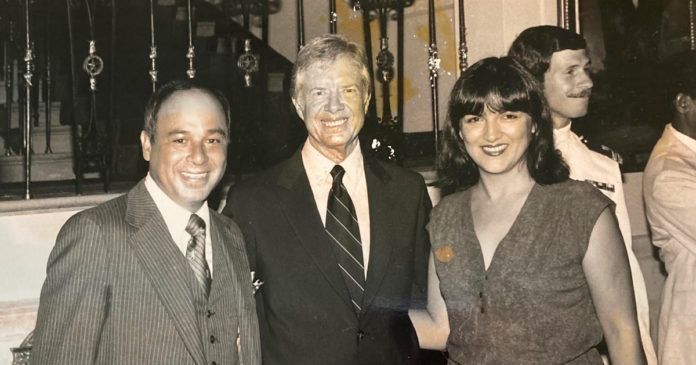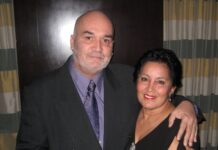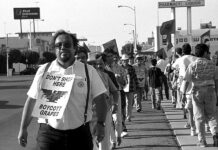It was not until 1981 before the Seminole Indian tribe in Florida began a campaign to keep high-stakes bingo on their reservation. The District Attorney for Broward County was working to shut them down.
The tribe needed a strong advocate who would fight for them – a top, expensive, full-service lobbying firm. But these firms were not interested in this bingo issue, nor could the tribe afford them. It was a lose-lose situation, it seemed, and few wanted to take the risk of working on this issue.
And then someone whispered to them the name of Manny Fierro, an aggressive Chicano Lobbyist in Washington D.C. A native of El Paso, Texas, Fierro was a Chicano activist who cut his organizing skills in Kansas before becoming a lobbyist in Washington D.C. He was contacted by the Seminoles to find a way to continue having bingo games.
Manny and his wife Bettie had been ipso facto the Ambassadors for Chicanos and other Latinos living in D.C. and were working to get more money for head start, educational programs, and training for Latinos. At that time there were few elected congressional Latinos. They led a nonprofit that was called “El Congreso” and sponsored the first large black-tie dinners and programs in the capitol for Latinos. They got Latinos appointed to positions in the Federal government and helped to elect some of the first Latinos to Congress.
Soon this couple was on the key list for special events at the White House and elsewhere. Manny had more smoke and mirrors than most carnival magicians; he did all this and took many risks to make a difference for the poor.
Manny had a smart and strategic mind and was not afraid to confront federal agencies, congressional offices, and state offices. While small in stature he was larger than life when defending the poor and downtrodden. He was of La Raza/The People and was not afraid of anything.

In those days it was especially hard to fight for justice and keep money coming in to support the struggle for equality
And then he was asked to work with a tribe to get them economic justice.
The Broward County District attorney was keeping the Seminole Indian tribe from having Bingo on the reservation. This was known as High Stakes bingo and could be played every night.
On his drive to meet with the Seminole leadership Manny noticed a billboard at a church advertising “Bingo” on Wednesdays. The church was right next to the reservation.
Manny immediately realized the racial and economic issues with the situation. If the church can have bingo, then the Seminoles should have it. Of course, those in power were not interested in doing anything for the Native Americans. Being the good and aggressive bulldog that he was on issues of economic injustice, Manny carried this argument to anyone who would listen.

The Seminoles filed a legal suit demanding to be allowed bingo on their reservation. The suit won at the lower levels but was appealed to the Supreme Court where it was affirmed that if churches could have bingo so should the Indians.
This inspired tribes in other states to file legal suits to get the right to have gaming on their reservations. As this moved forward, not all tribes were given the opportunity to establish gambling. Manny, like a modern Don Quixote, fought real windmills of resistance and disbelief.
Soon Congress was debating a federal bill that would give tribes a wider scope into the lucrative Gaming business.
Manny was the architect of this scheme to empower First Nation People and he set up a governing structure for this venture. There was no road map or history that Manny could rely on for the arguments that he needed to make and the work that needed to be done. He knew it was unfair and racist and that was enough for him. Even many other Chicano leaders did not understand why or what Manny was doing.
But it is clear that Manny was the person who got the ball rolling. Soon economically strapped tribal bodies had an income that surpassed their wildest dreams.
Manny was the captain of this fast-moving ship at a time of turbulent waters and, in the process he ruffled feathers in Congress and even among some tribes. He served as Executive Director (consultant and lobbyist) of the Gaming structure until 1991 when it was taken over by the Native people who wanted to direct this most important project themselves. The structure was growing quickly.

If you go into any Indian Casino in this country and ask the management or the head of the tribal government how the Tribal Gaming effort was started, they will not be able to know that Manny Fierro was the spark and leadership that got this industry in the door. He pushed the development of NIGA (National Indian Gaming Association).
Movements do not keep good records of their beginnings. For example MLK did not start the Civil Rights Movement nor the Montgomery Bus Boycott. There were incredible organizers and volunteers in the beginning and yet we only remember MLK and Rosa Parks.
In a case at the University of Colorado, Black Athletes, and I, the only Mexican, were organized by radical white Students SDS (Students for a Democratic Society) in 1968 to protest MLK’s assassination. As a result of all the demonstrations, the university funded the first scholarship programs for minorities. But among the records of the minority programs at the university, we do not exist.
Thus, our search for more details of Manny’s work is hard to uncover given the archaeological work needed. But the research continues.
The world lost this meteor man Manny Fierro on April 1, 2004.
One Indian fellow mentioned that while the white man took away their land, practiced genocide, put them on poor land called a reservation, and broke almost every treaty that was signed, they had somehow survived. And that now they were taking money from those who had oppressed them. Yep, some see it as another way for a group getting reparations.

Today, these gaming operations bring in revenues of between $27-30 billion. And many tribes are using much of their profits to help tribal members and the surrounding communities.
But along with this good work they should honor their true history, the work done by Manny, congressional leaders, lawyers, and tribal leadership.
Those individuals dreamed the Impossible and through hard work made it a reality.
Contributors Bettie Baca, Tino Fierro, and Alex Rodriquez. Photo courtesy Tino Fierro.

























En mi juventud tuve el placer y honor de conocer y compartir con el Señor Manny Fierro, siendo uno de los amigos más cercanos a su hijo Manny Fierro Jr. El conocer las hazañas realizadas por este gran hombre de una pequeña estatura, junto a su esposa Bettie Baca, crea un hermoso sentimiento y orgullo en formar parte de esa raza latina que llevo en mis entrañas. Por pioneros como ellos es que se ha avanzado enormemente en muchos procesos de justicia, equidad e igualdad para todo tipo de personas minoritarias en los Estados Unidos de América. Muchas gracias Señor Fierro y Sra Baca por todos sus esfuerzos y logros.